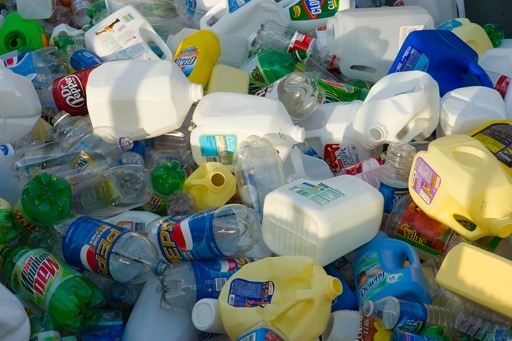EarthTalk® From the Editors of E – The Environmental Magazine
Dear EarthTalk: Any tips for reducing the amount of disposable plastic I use for food storage? — J. Spencer, Gaithersburg, MD
Analysts estimate that of the over six billion tons of plastic produced worldwide since the 1950s, we have recycled only nine percent of it and incinerated another 12 percent. The remaining, some 4.8 billion tons of plastic is either still in use, filling up landfills, or littered into streets, streams and eventually the ocean.
About a third of the plastic produced worldwide is for single-use applications (bottles, bags, utensils, food storage, etc.)—and it is these items that most commonly end up on the side of the road. Researchers discussed in a 2019 paper in Nature that if we do nothing to step up flagging efforts to reduce, reuse and recycle plastics, we could have three times as much of it littered into the global environment by 2060.
So, what’s an environmentally conscious consumer to do? For starters, avoid getting plastic bags at the store. Either bring your own reusable one or if you need to go disposable, at least opt for paper that can be recycled or composted. And if you are food shopping, gravitate toward the bulk items aisle where you can buy just the right amount without unnecessary extra packaging.
Another way to cut down on single use plastic is ditching plastic straws. Americans go through about 500 million plastic straws daily. Opting for reusable straws (metal, silicone, bamboo or glass, anyone?)—or no straw at all—is one of the simplest ways to cut down on disposable plastic.
According to the non-profit Center for EcoTechnology (CET), the kitchen is one place where you can definitely make some easy adjustments to save plastic. For starters, ditch the plastic wrap; it’s difficult to recycle and can clog recycling processing machines. One great alternative is beeswax paper, which is reusable, washable and compostable. (Make sure to wash it with cold water only so the wax doesn’t melt.)
“Another alternative to plastic wrap is storing your food in glass storage containers or glass jars,” adds CET. “Glass is 100% recyclable and can be recycled endlessly without loss in quality or purity.”
Putting dish cloths to use is another way to eschew plastic wrap for keeping produce fresh. Simply wrap up those fruits or veggies in a cloth instead of plastic—or put them in a bowl and cover with a dish cloth and rubber band for a tight seal—and put ‘em in the fridge.
One often overlooked environmental downside of the coronavirus situation is that restaurants throw in so much disposable plasticware for to-go and delivery orders—whether customers need it or not. That’s why a coalition of 120 environmental groups recently teamed up to send letters to seven national food delivery companies asking they change their default ordering process to one that does not automatically include utensils, napkins, condiments and straws in order to reduce the tsunami of single-use plastic pollution entering our oceans, landfills and incinerators.
CONTACTS: Future scenarios of global plastic waste generation and disposal, https://www.nature.com/articles/s41599-018-0212-7; “Zero Waste Substitutes to Eliminate Single Use Plastic in Your Kitchen,” https://www.centerforecotechnology.org/zero-waste-substitutes-to-eliminate-single-use-plastic-in-your-kitchen/; UberEats, GrubHub, Delivery.com, Doordash, Seamless, PostMates & Caviar Asked to “Hold The Single-Use Plastics, Please,” https://seaturtles.org/ubereats-grubhub-delivery-com-doordash-seamless-postmates-caviar-asked-to-hold-the-single-use-plastics-please/.
EarthTalk® is produced by Roddy Scheer & Doug Moss for the 501(c)3 nonprofit EarthTalk. See more at https://emagazine.com. To donate, visit https://earthtalk.org. Send questions to: question@earthtalk.org.








